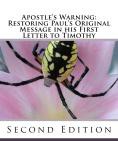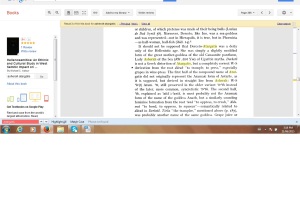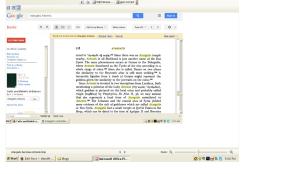In the Septuagint (Greek Old Testament of the 2nd century B.C.) the author of “The Wisdom of Solomon” describes the practices of the Israelites when they worshiped the gods and goddesses of Canaan. Chief among these deities were Baal, Molech and Asherah. In the Wisdom of Solomon 12 and in 2nd Kings 17, we’re told that worshiping the idols of Canaan involved sexual immorality and the sacrifice of children. In the Septuagint, those who sacrifice their children to false gods are called “authentas.”
In the Hellenistic age, Asherah became known as the goddess Atargatis (Astour, Hellenosemitica, 1967, p. 206).
“Her priesthood was of the Oriental ecstatic type, rumored to perform acts of self mutilation and self-castration, much like the priesthood of Cybele…
The worship of Atargatis spread to other parts of the Mediterranean, mostly brought by Syrian slaves. The Greeks called Her Derketo (an adapted form of ‘Atargatis’), and considered Her the chief Goddess of the Syrians. She had a temple in Ephesus, where the priestesses were so numerous they supposedly gave rise to the Amazon legends…
Atargatis was known by other names in this region of the world, including ‘Cybele’ and ‘Artemis…’
She was the ‘Great Mother and Fertility Goddess,’ and was connected with ‘astrology and divination.’” (http://www.thaliatook.com/OGOD/atargatis.html)
What I’d like to highlight is that child sacrifice, ritual emasculation and divination were hallmarks of the worship of Asherah/Atargatis in the ancient world. I’d also like to highlight the fact that worshipers of the Canaanite gods and goddesses were referred to in the Septuagint as “authentas.”
In the New Testament, the apostle Paul writes a letter to Timothy warning against a form of ascetic Gnosticism in Ephesus. The most prominent form of this type of spirituality in the region during the New Testament era was found in the worship of Artemis of Ephesus, who was still called Cybele by native Anatolians. Historians Diodorus Siculus and Pompeius Trogus report that worshipers of Artemis/Cybele did indeed practice child sacrifice. Cybele worshipers were historically matriarchal, and they traditionally either put male children to death or mutilated their arms and legs so that they could be rendered subservient to the war-like women. In the first century B.C. there is evidence that Cybele’s priesthood still practiced ritual castration. The priests of Artemis in Ephesus were also traditionally eunuchs. Even when Rome legally banned castration, Cybele’s priests continued the practice. The priests of Artemis in Ephesus refrained from castration but practiced celibacy and fasting from various foods. They claimed that their ascetic lifestyle enabled them to receive special knowledge (gnosis) from their goddess. They used this knowledge to tell people’s fortunes for money. In other words, they practiced divination.
What I’d like to highlight is that child sacrifice, ritual emasculation and divination were hallmarks of the worship of Cybele/Artemis in Asia (the capital of this Roman Province was Ephesus). I’d also like to highlight the fact that in his first letter to Timothy Paul prohibits a practice he calls “authentein.”
Moreover, I hope to highlight that it is not simply the case that the worship of Asherah/Atargatis and Cyble/Artemis were similar. These are all different names assigned to essentially the same goddess.
Historians Polybius (2nd century B.C.) and Diodorus Siculus (1st century B.C.) use the terms “authentes” and “authentas” to refer to those who either perpetrate murder or support violent actions.
In the worship of Asherah/Atargatis and Cybele/Artemis we have evidence of child sacrifice and the violence of ritual castration directed exclusive against men. I would submit, therefore, that the use of “authentas” in the Septuagint and “authentein” in the New Testament are not coincidental. I believe the same word is being used to address violent practices associated with the worship of essentially the same goddess: the Mother of the gods, called Asherah by the Canaanites, Atargatis by the Phoenicians, Cybele by the Anatolians, and Artemis by the Greeks.
I also think it is no coincidence that Paul prohibits “authentein” against “a man,” and that the ritual violence connected with the worship of the mother goddess was directed exclusively and persistently against her male priests.
What are the implications of these findings?
“Authentein” should never have been translated “to exercise authority.” The centuries-old practice of viewing this word as representative of murder or supporting violence seems to apply equally to the Old Testament worship of Asherah and the New Testament worship of Artemis/Cybele. In both Testaments, the worship of idols and all of the violent practices associated with it are clearly and consistently prohibited.
What was Paul saying to Timothy about women and authority? Probably nothing at all.
Document evidence for the relationships between Asherah, Atargatis and Artemis of Asia Minor:


